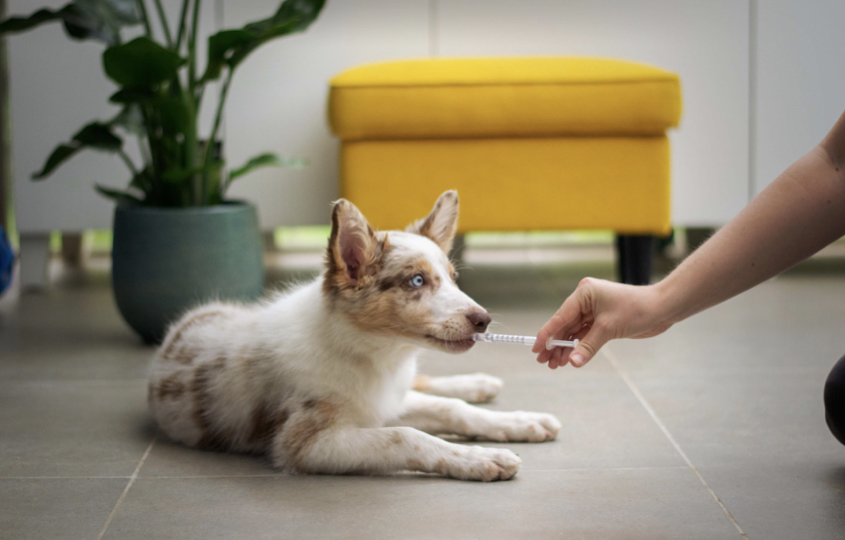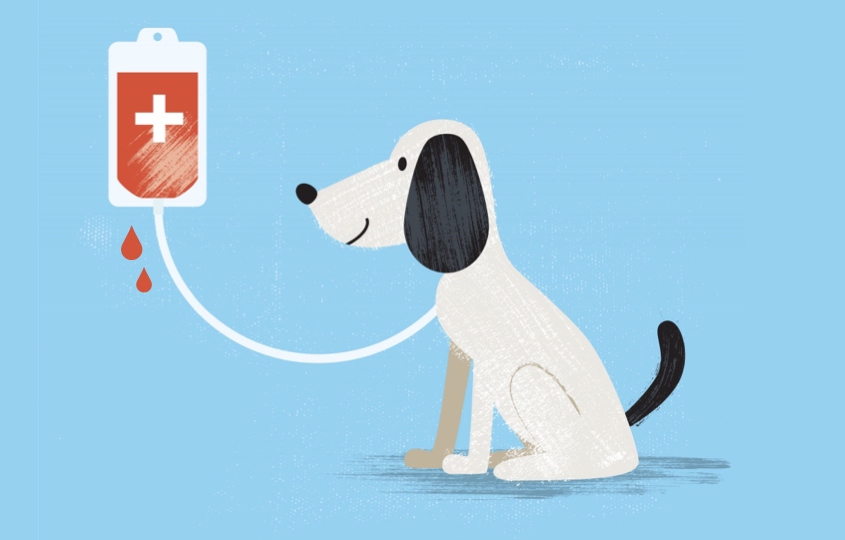First of all, human blood types are categorized by antigens on red blood cells, and for dogs, the approach is the same but there are 13 types of blood types in dogs.
FAQ 1: What is an antigen?
Antigen can be interpreted as a marker, a segment that can be recognized on the cell, which can be a protein, DNA, carbohydrate or small molecule chemical substance; the antibody is the thing that recognizes these antigens, and there can be multiple antigens present on a cell.
Blood types are distinguished according to the antigens on the red blood cells. Among them, the antigen 1 is the most powerful immune response and may cause an acute hemolytic reaction, so we mainly identify this antigen.
For dogs, there are two types: DEA1(+) and DEA1(-). DEA stands for Dog Erythrocyte Antigen. (+) means that the antigen is present, and (-) means that the antigen is not present. Before blood transfusion, it is necessary to test the blood type and match with the right blood suitable for individual dogs.
FAQ 2: Do dogs also have universal blood type (Type O to humans)?
Yes! DEA1(+) blood type can accept both DEA1(+) and DEA1(-) blood. DEA1(+) means that there is 1 antigen, DEA1(-) means that there is no such antigen, so it is generally fine to give DEA1(-) this blood to DEA1(+) or DEA1(-), so DEA1(-) can potentially be the equivalent of O blood type to humans, but other secondary antigens should be considered, such as 3.5.7. If these antigens are all negative and antigen 4 is positive, such blood type is then “O blood type in the dog world”.

FAQ 3: Does your dog need a blood type test for the first blood transfusion?
We’ve heard people say that you don’t need a blood type test for the first blood transfusion, but the truth is that doing so can be dangerous.
The reason is that dogs are born without antibodies to fight against antigens on red blood cells. That is to say, the first blood transfusion can be done without blood type testing before the transfusion. In theory, there will be no immune response after the transfusion. However, the theoretical basis for the first time without blood type testing is that dogs are born with no antibodies to fight against antigens on red blood cells, but in some cases, dogs do have antibodies to fight against antigens on red blood cells. A very strong immune response leads to an acute hemolytic reaction, and the dog may die as a result. Among them, patients with IMHA autoimmune hemolysis will have this situation. If the blood type and matching are not tested, the patient will lose lots of blood. After the blood is transfused, the dog will have antibodies to fight against the transfused red blood cells, and then lead to hemolysis and possibly death, so it is dangerous to not test your dog’s blood type first.
Also, if the dog is later given the wrong blood type in subsequent blood transfusion, the dog will produce antibodies, the reaction of rejection can be very serious, and the probability of hemolytic death will also increase.
So, let’s act cautiously!
Related reading: How CBD can help pets with anxiety, arthritis, cancer or epilepsy?
Related reading: Pet-friendly hotels and serviced apartments in Hong Kong
Hellodog does not provide medical advice, diagnosis or treatment. See more details here.
